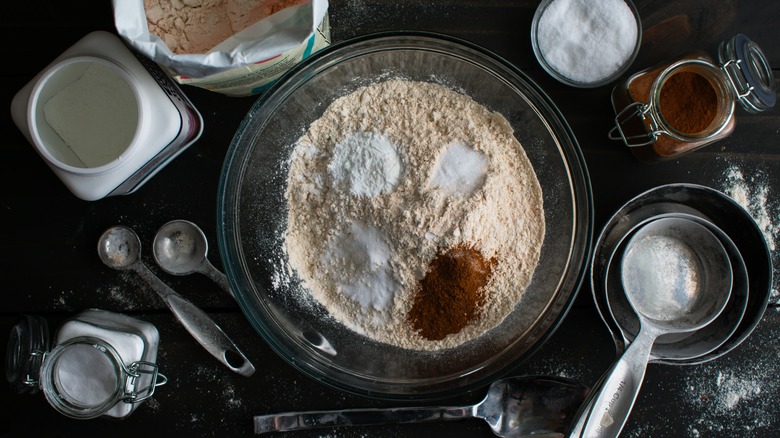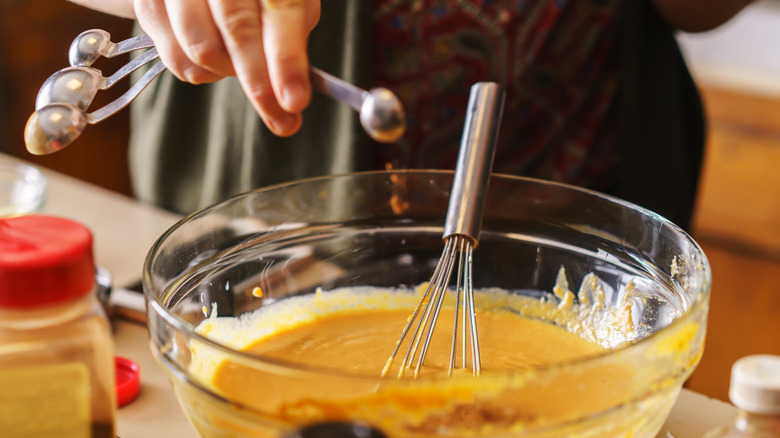Recipes Today Owe A Lot To This 19th-Century Cookbook Writer
Imagine baking cookies with a recipe that calls for a goodly amount of molasses and a few liberal handfuls of flour. Such were the inexact directions faced by home cooks before a 19th-century chef named Fannie Farmer said enough was enough.
Farmer was a scientifically-minded woman who started her own cooking school and was a sought-after lecturer at Harvard. She came of age on the cusp of the era when the general public developed a curiosity about the science behind cooking. Farmer published an 1896 cookbook that used precise measurements rather than the common practice of that time, which was a bit of vague instruction that left cooks guessing if they were measuring a dollop or pinch quite the way grandma intended.
"Correct measurements are absolutely necessary to ensure the best results," she wrote in what is now called simply "The Fannie Farmer cookbook." It may seem that she was stating the obvious, but at the time, her cookbook disrupted the ingrained way that people formatted recipes. She revolutionized the structure of recipes, and her framework has been in use ever since.
People bought up Farmer's cookbook in a frenzy, and its influence was immediate. Even Farmer's culinary mentor, Mary Lincoln, who ran the Boston Cooking School that Farmer had attended, was so influenced by Farmer's call for standardization that she switched her own 1883 cookbook from using directions like "butter about the size of an egg" to a 1902 edition that used cups, ounces, and tablespoons instead.
Fannie Farmer set the stage for today's celebrity chefs
In 2018, The New York Times retroactively published an obituary of Fannie Farmer and extolled her acumen for handling the 1900s version of mass media. Fannie Farmer's Harvard Medical School lectures were published in the "Boston Evening Transcript," she was a food editor for a dominant women's magazine, she had a best-selling cookbook, and her revolutionary recipes and techniques quite simply and predictably worked. All of this positioned her as something of a celebrity chef during her career.
Precise measurements and clear instructions remained the heartbeat of Farmer's school even after she died in 1915. Students honed skills that ordinary people could track and learn from, much like one young Lena Richard did when she attended Miss Farmer's School of Cookery in 1918. Richard translated Farmer's teachable culinary style to new mediums, including as the host of one of the first-ever TV cooking shows. Richard's show launched in 1949, and she presented exact measurements and techniques that made viewers say they wanted to grab a paper and pencil to take notes.
More than a decade later, culinary darling Julia Child also credited Farmer for playing a crucial role in the fact that she learned to cook systematically, and she cited Farmer's cookbook as the first source of recipes she tackled in her mom's kitchen. Even non-chef celebrities like Sara Jessica Parker swear by Farmer's cookbook when it comes to pulling off a measured, predictably delicious meal.

